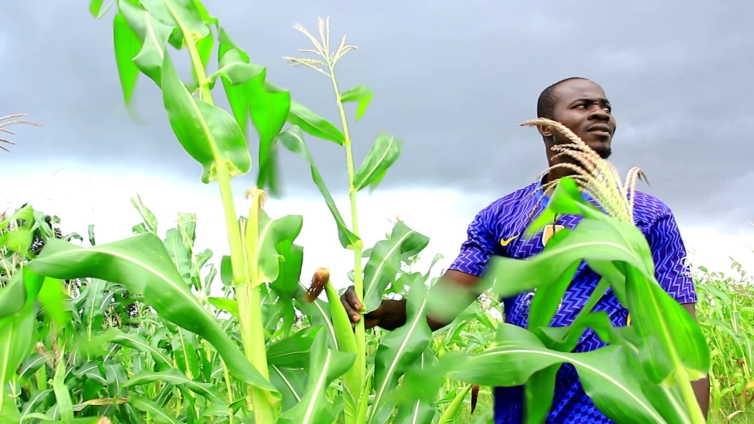Mohammed Seidu had a problem four years ago. The farmer in the Ashanti region's Ejura Sekyeredumasi usually began ploughing his fields to prepare them for the major season crops of maize and cowpea. He needed the rains, but the region's unpredictable weather makes it impossible to predict when it will arrive.
“Over the past few years, we were affected by long dry spells and other things,” Mr. Seidu said.
As a result, Mohammed relies on GMet weather information, which is commonly distributed via social media, particularly WhatsApp.
Every morning at around 5 a.m., he must check the weather forecast before planning his day's activities.
"When you are going to the farm, and you don't have any weather information, it is like you are in darkness. Sometimes, you go and apply some chemicals, you come home and the rain falls on them. It becomes waste. So when you are able to know today, maybe, the predictions of the GMet, we are likely to have rainfall, why should I go and waste my time?” he said.
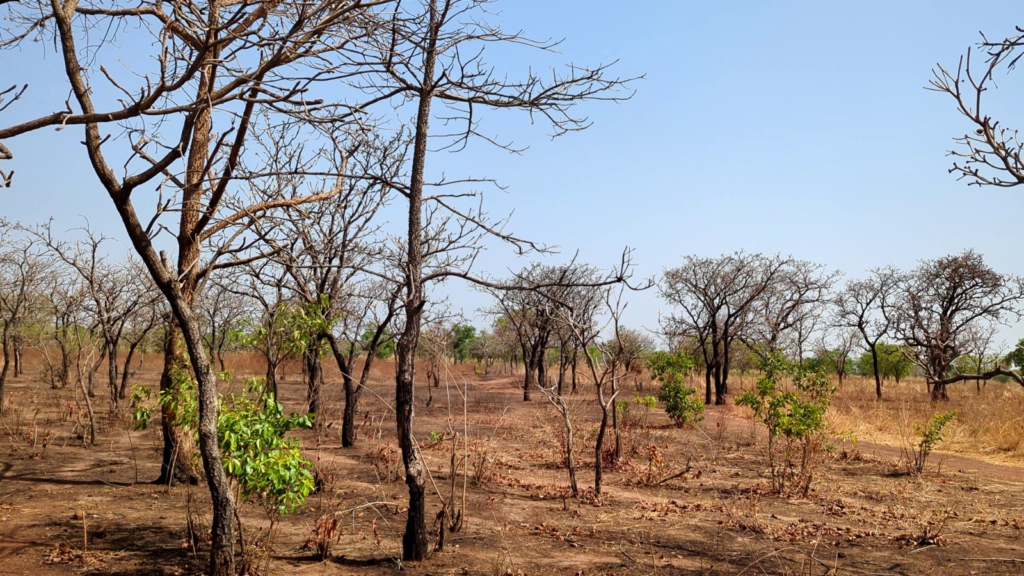
Mr. Seidu shares the information with other local farmers through another local platform he created.
"Ejura is a farming community and we have a lot of farmers - everyone is actually a farmer and so we create other platforms where we add members, sends the information to them, so they can also benefit from what we are benefiting.
"I think the Meteo agency has been very consistent over the years and they keep giving us information day in day out. They give us update about three times every day, in the morning; it comes in afternoon and the evening. I think it has helped a lot,” he commended the agency.
Farmers Embracing GMet forecast
Ghanaian farmers are turning to GMet Weather forecast for a simple solution after years of fighting climate change – and usually losing.
Weather information can assist farmers in better risk management, allowing them to take advantage of favorable climatic conditions while protecting their livelihoods from extreme events.
However, simply having information available is not enough; it must also be translated into actionable advisories and supported by effective communication processes, as well as training to understand and use the information.
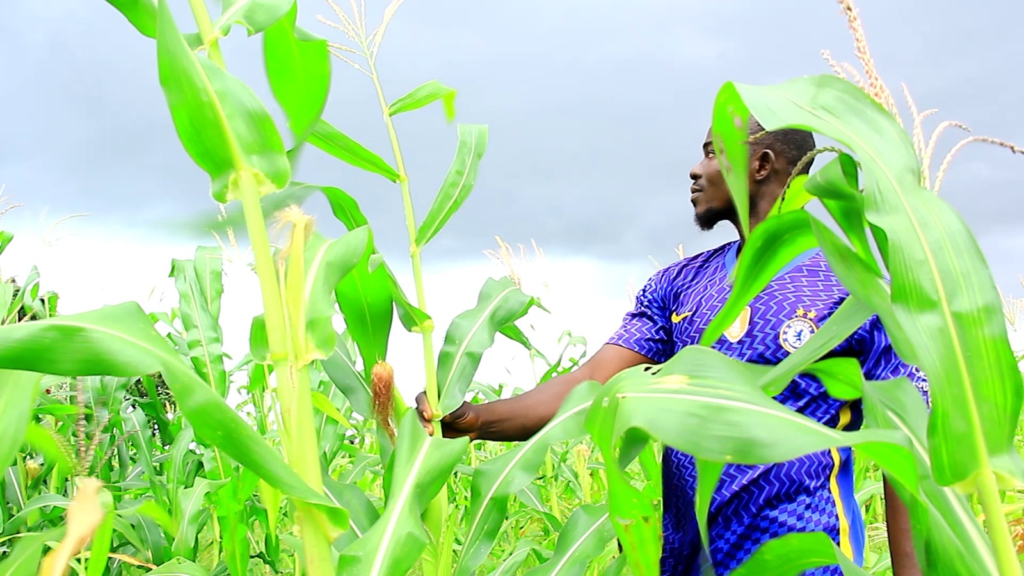
The Ghana Agricultural Sector Investment Programme (GASIP), in collaboration with GMet, has improved the availability and utility of weather information for smallholder farming communities, particularly women and youth, in order to fill knowledge and evidence gaps and develop more effective services.
Farmers who have benefited from training in the understanding and application of GMet weather information report that they have saved time, energy, and resources.
Specially developed monitoring and information satellite systems now provide farmers with the data they need to continuously adapt to unpredictable weather as part of a government GASIP aimed at promoting flexible, sustainable farming.
Since 2019, the project has trained over 3,000 farmers on how to interpret GMet weather data.
Farmers have information at their fingertips on everything from atmospheric temperature to storm and warning signs of impending natural disasters.
They share the information with their community so that everyone can decide what crop to plant, when to plant it, and how to maximize yield.

Changing weather patterns in Ghana
The weather patterns in Ghana are shifting. Because rain-fed agriculture accounts for a large portion of the country’s agriculture, changes in rainfall patterns have a significant influence.
The northern part of the country experiences only one rainy season, which lasts from May to September but even this pattern is no longer guaranteed as rain delays and early cessation have become the norm in recent years.
It is becoming less and less predictable when the rains will start and when they will stop, leaving farmers always racing against time all season long, guess-working when they can plant or harvest their crops on time.
“This is exactly what we’re experiencing right now. Rain does not arrive on schedule, yet it ends so sooner than expected. As a result, huge crop failures occur,” Konlan Justice, Management Information System officer at Tempane district.
Other districts, such as Nanton, Tolon, Yendi, Kumbungu, Karaga, Mion, Mamprugu Moagduri, Saboba, Tatale-Sanguli, and Builsa South and North, are in the same boat.
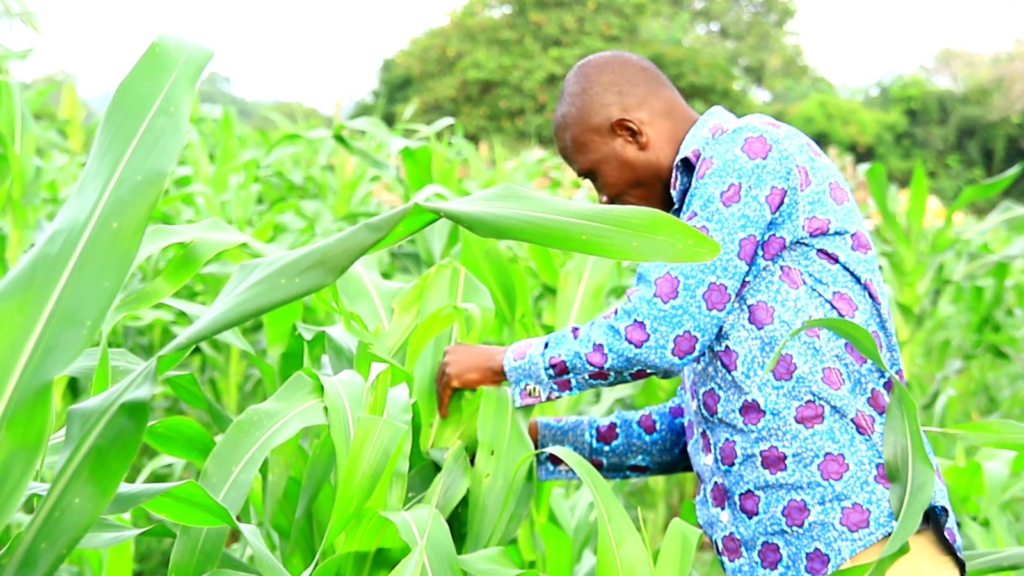
In Nanumba South, Bongo, Nandom, Sisala West and East districts farmers are praying for rain, but it does not look like there is any hope on the horizon at the moment.
The agony is felt by hundreds of farmers who feed thousands of families because the land is dry, dusty, and barren. This is a troubling trend given that it is the peak growing season.
The causes of this issue are numerous and do not appear to be going away anytime soon.
Climate change has been a major source of worry
Africa, according to the United Nations, is the continent most vulnerable to the impact of climate change, despite the fact that it accounts for only 4% of global carbon emissions.
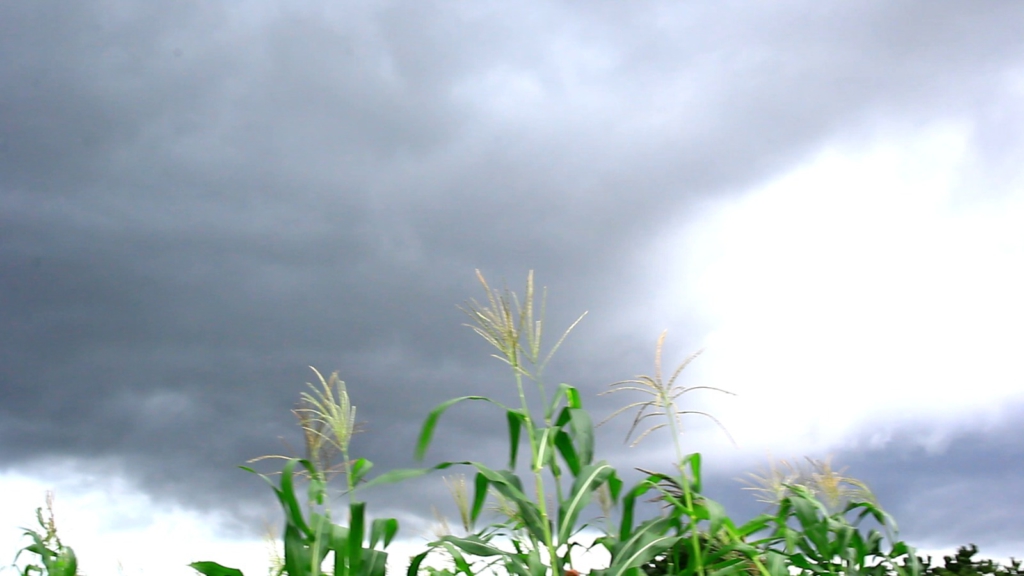
Raising public awareness of the suffering of the farmers in these districts would draw attention and aid, but the most vulnerable may not be able to wait much longer as the situation worsens. That is why GASIP’s intervention in the timeframe is commendable.
More than 90 farmers, agriculture extension agents and media practitioners from 36 districts across the five regions of northern Ghana have been speaking about the erratic rainfall patterns in their communities in recent times at the Ghana Agricultural Sector Investment Programme’s (GASIP) “Building Champions in Agribusiness Value Chains for Climate Change Resilience” event in the Savannah regional capital, Damongo.
Installation of 12 Satellite Automatic Weather Stations
To take the guesswork out of farming in a country with such unreliable rainfall, the Ghana Agricultural Sector Investment Programme (GASIP) funded the installation of 12 Satellite Automatic Weather Stations across the country.
According to GMet Meteorologist, Joshua Asamoah, there are mandate stations in the Northern region that have already been calibrated over the years, and the agency utilizes those as standards for the automated stations.
“So we compare the data from the automatic stations with the data we have from the manual stations and see how the data from the two stations correlates, if you are able to standardize the automatic stations to give the accuracy the manual stations will give you, then you can rely on that. So that is the first thing we do,” he said.
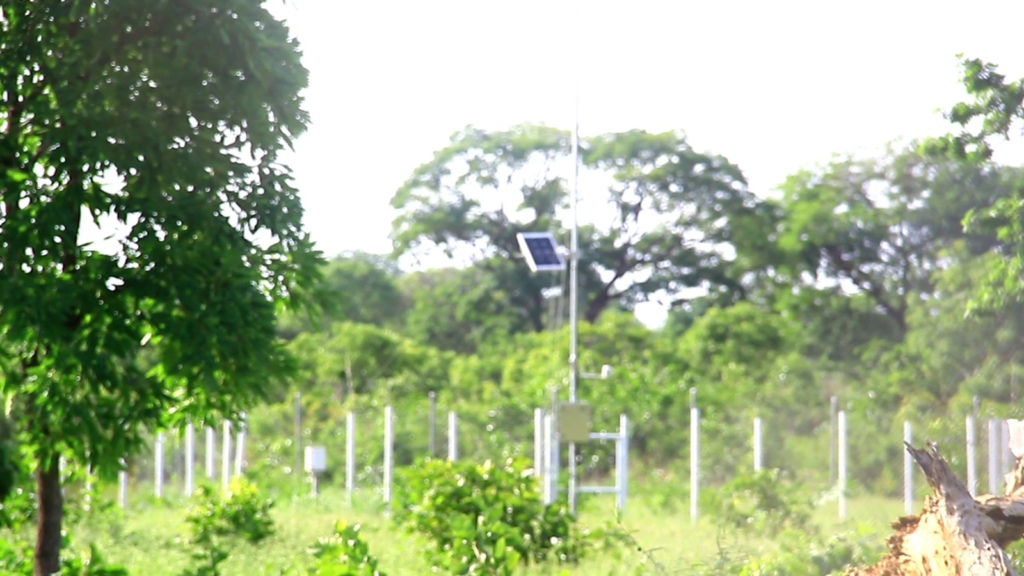
GMet officials calibrate the automatic stations to reach the desired standard, and they also examine the quality control of the information arriving from the stations.
“Sometimes is just sensor or probably accumulate some dust and so will be giving you some wrong figures and all of that, so you constantly monitor and see that you are maintaining the place, you are cleaning the sensors quite regularly, and then you are monitoring the data to see that every data that you are getting from there is something that is realistic, you don't get any temperature values and just feed your modules with them, you validate and see that every data you are getting there is what you should really rely on, so that is what we are doing to make sure that we are getting the right data to feed our modules for forecasting,” he said.
The satellite stations, which cost around 60,000 USD to set up, are outfitted with as many as 9 different sensors to allow for easy data collection for weather forecasting.
The sensors collect and transmit data such as wind speed and direction, the amount of solar radiation available to power farmers' solar energy installations, and rainfall measurements.
The data is sent to a centralized information-processing and analysis station in Accra every 5 minutes by GMet. People in the centralized office collect and analyze data to share with the public.
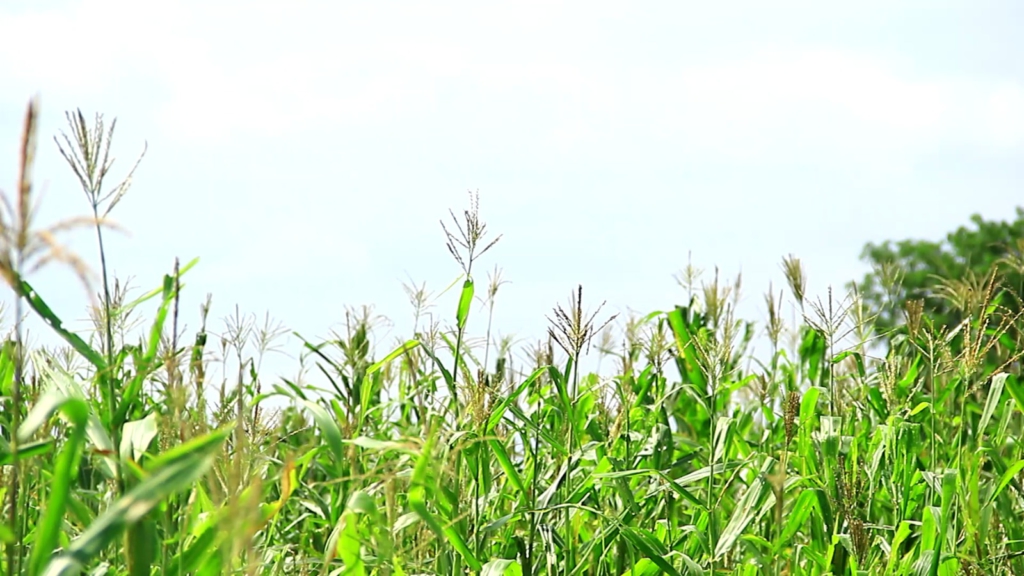
The dataset hosted on a server is assessed by officers of GMet for analysis and research purposes. The data also contribute to forecast outputs for the public.
Seidu and his farming colleagues
Seidu, who has been using GMet weather information since 2021, says that it has saved many people's livelihoods in his community.
He says he lost a lot of money last cropping season because he couldn't predict or understand the weather.
"We have unplanned farming season, we do run at a loss because sometimes you don’t know when the rain is going to end, when there’s going to be a drought, you just don’t plan, you just rely on nature for survival. About 2 farming seasons ago for instance, I planted my cowpea and I think within a month or so, we just had a 1 month rain and the rain stopped, so we totally run a loss," he said.
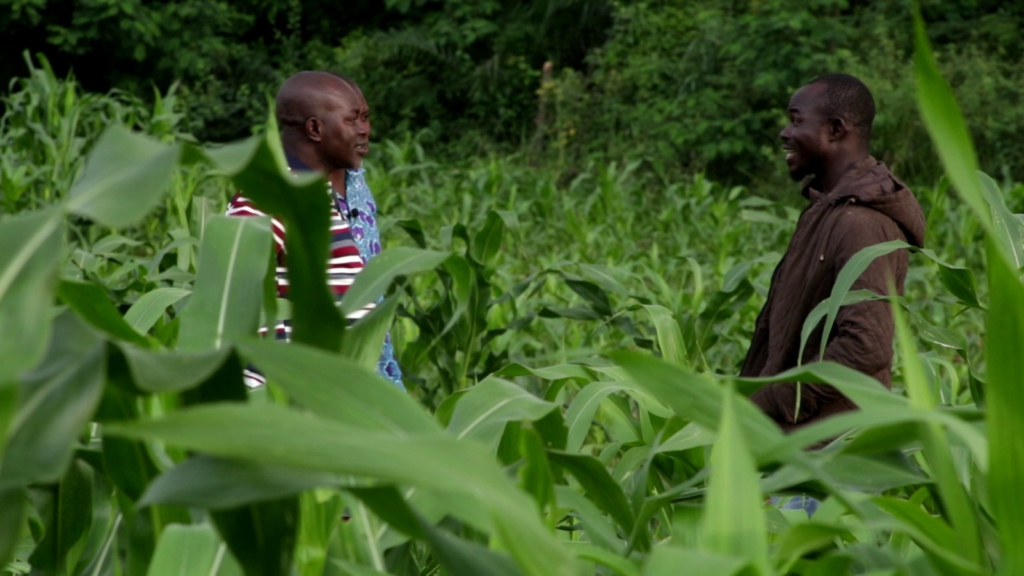
However, Mohammed is now conserving his time, energy, and resources.
“But because we are going to get the information, you’re not going to waste much time for that, you get my point. So, basically it saves time and maybe resources too, because if you go to the farm you’re going to put in resources there, you get it? And maybe it will go waste because of the rain that is going to come or something of that sort, but through that you rest, your body rest, your money rest and all that.”
His colleagues, Abdul Gafar Osman and Sulemana Abubakar, are in the same boat. Both have lost money in previous seasons.
According Mr. Osman, last 2-years was a bad season for him because he lost about 112,600 cedis.
“Because I ploughed my land, I planted and I had to do the spraying, we had some weeds here which locally we call it ‘adanko milk’. That Adanko milk, in fact, will not work if you sprinkle it and are unlucky and it rains, it will not work. I had that problem."
Mr. Osman has to re-plough the soil and plant it three times because he didn't have access to weather information and couldn't predict or understand the weather report.
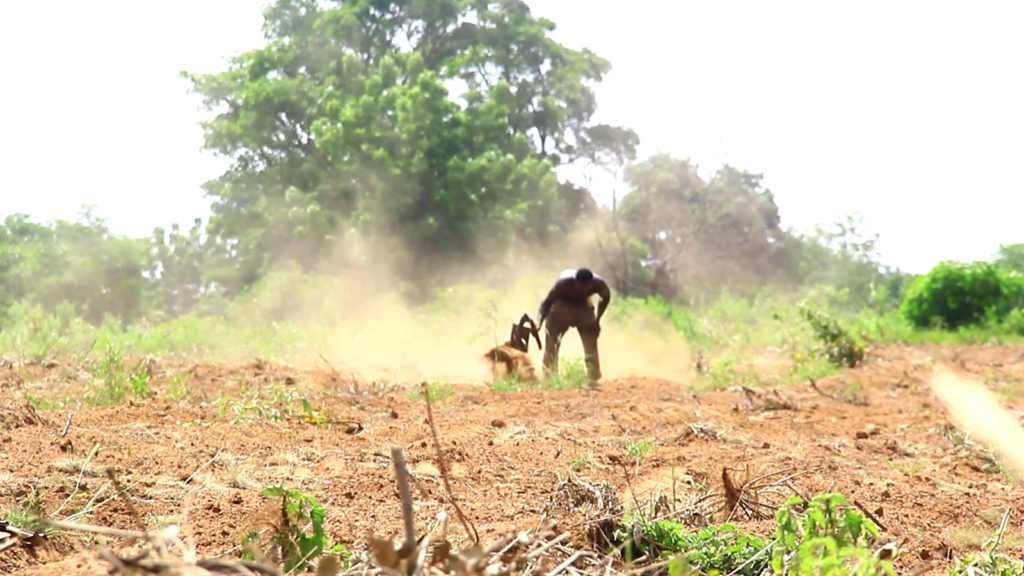
Sulemana reveals that he only farms when it rains. “There’s a season whereby the way the rain, the rain delayed, when it comes we feel it will go far, we went and put all our monies and everything, later it couldn’t go far. But if it were to be today, the platform will update me that this rain is not going far, don’t do it.”
But now that they have relied on Seidu for weather information from GMet, they've figured out the weather information.
Mr. Osman indicates that they can now make decisions on when to sow, when to plough, and when to spray. He mentioned examples from the past where things were done anyway.
“But since we started getting the updates, it helps because it will tell you when it will rain so you will also have to take your own decision. The right time to spray so that you will not run at a lost, so it helps a lot. Currently, the platform is helping me a lot to know when to farm my farm produce. It helps me to plan well. But in the olden days, you will see the rain and you might think that the rain will go far.”
Mr. Osman's experience is similar to Sulemana's in that he profited greatly from the weather report.
Seidu notes that, the information has been “very useful not to me alone but to farmers. Sometimes, people use to call me in the morning and ask 'charley how is the weather going to look like this morning?' And it's like I've become more or less their weather guide.”
The situation in the Northern part of the country is not different. In East Gonja, aside from having to deal with the prolonged periods of dry spell in the past, farmers now rely on the weather information through the advice of extension agents to embrace climate-smart agricultural methods.
An Agriculture Extension Agent, Anass George believes the situation is gradually changing as platforms for weather information is active. The story in East Mamprusi is not particularly different.
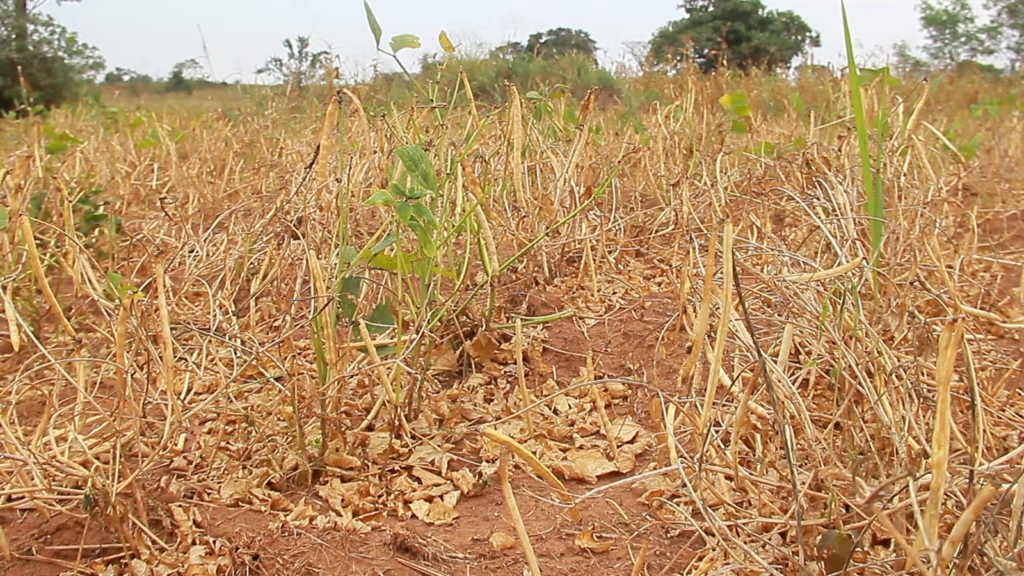
GMet Difficulties
One of the difficulties over the years has been accessing the message directly to those who use them, particularly farmers.
According to GMet Meteorologist, Joshua Asamoah, most farmers are uneducated, making it difficult to get the message to them.
“One of the challenges we had over the years is getting the message directly to people who use the messages. Because we use social media platforms and email as means of transplanting the messages and most of the farmers are uneducated and so they don’t get this messages,” Joshua said.
Nana Kofi Opoku, the agency's principal meteorologist, says that while the agency works with farmers on an irregular basis, he has yet to see a scale-up opportunity to train farmers.
The collaboration with GASIP has allowed the agency to train journalists, farmers, and agricultural extension agents to use the weather information.
“It’s important to note that ever since we started working with GASIP, we have had the opportunity of holding training and sessions all over the country.”
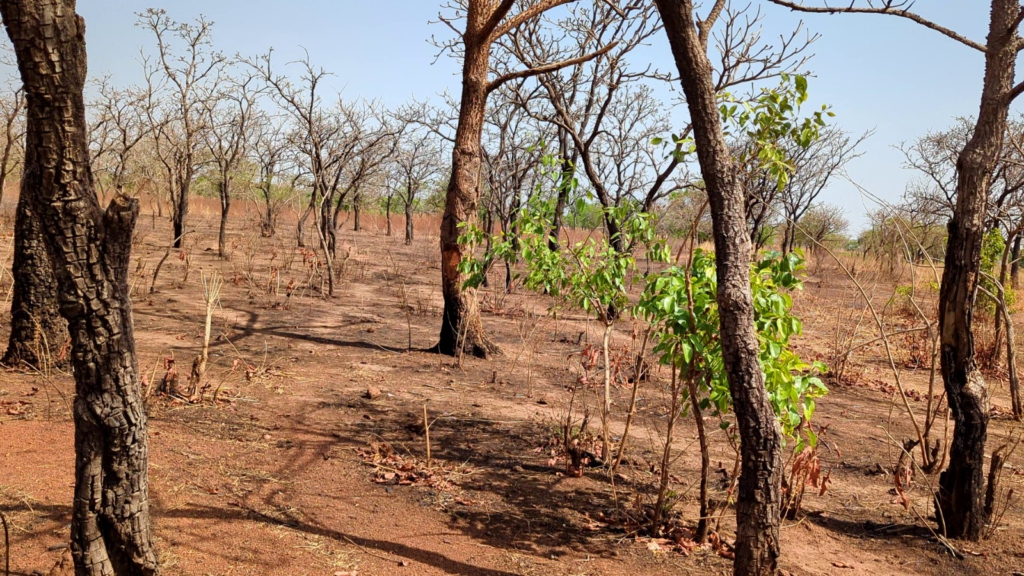
The agency has identified issues raised by farmers that must be addressed.
Mr. Opoku says that during the discussions with farmers, the issue of the atmosphere, which is the idea of rainfalls, rainfall cessations, and the erratic nature of rainfall came to the fore.
“When it is time for harvesting the time that they are having a lot of rains which is affecting their harvests. When there is not supposed to be drought, you will see prolong trails of drought and these are concerns that the farmers have raised. We understand that as the climate change, we understand that as vegetation changes the environmental factors changes, some of these things may happen.”
Though the agency has modified its daily and seasonal forecasts, meteorologists are committing to further developing 10-day and monthly forecasts.
"When they use all of these forecasts and advisories, we may not be able to stop what nature is giving us - but it will help farmers to adapt," said Nana Opoku.
Latest Stories
-
EC sets May 7 to 27 for voters’ register update
56 seconds -
Lekzy Decomic, Clemento Suarez, OB Amponsah, others honoured at Ghana Comedy Awards
15 mins -
Harvey Weinstein’s 2020 rape conviction overturned
28 mins -
Late government payments crippling SSNIT – ILO
33 mins -
Experts to shape more equitable digital future at DRIF 24
37 mins -
Bright Simons: Ghana’s billion-dollar ‘Timber Merchant’ deal to protect taxes
55 mins -
Ashanti Regional Minister defends arrest of ECG boss, rejects calls for apology
59 mins -
Cash Waterfall Mechanism report shows significant non-compliance with formula for revenue allocation – Report
1 hour -
Prison officer injured in clash with soldiers in Bawku
1 hour -
SSNIT reserves projected to hit zero in 12 years – ILO
1 hour -
Prestigious Nigerian school closed over bullying reports
1 hour -
Funny Face failed to perform at my show after taking money – Parrot Mouth
2 hours -
CAFCC: Sports Minister to offer Dreams FC a ‘surprise’ package before Zamalek clash
2 hours -
CAF awards 3-0 win to RS Berkane, after Algerian customs confiscated their kits
2 hours -
AgriTech challenge pro holds first pitch
2 hours

